The Lord of the Rings: Gollum review - some great level design mired in problems
Where Smeagols dare.
The greatest achievement in The Lord of the Rings: Gollum is Gollum himself. He's a beautifully realised thing. His stance is a nervous, weight-shifting crouch. His run is a giddy, loping scamper. His movements seem shaped by his own poor experience of the world, forever flinching from expected blows. And that head, on top of that short, sinewy body, it's huge and filled with craftiness and sly wit. The large wet eyes shift constantly, looking for an opportunity, any opportunity. The mouth is a pinched snarl. Gollum, hidden in the dark, swimming in sewage, rattling through a blazing blood-coloured mine, looks like Linus van Pelt on the single worst day of his life. This is not a dig - it's exactly how Gollum should look.
Gollum's always been a fascinating splinter of chaos in the Tolkien books. The other characters simply aren't like this, as broadly sketched on the surface, as openly cartoonish, but with such haunted depths. Other characters don't argue with themselves bitterly over what to do. Other characters don't kill people on their birthdays. Other characters don't seem as strangely modern as Gollum, either. He has a wretched kind of star power that I reckon - don't hate me - is missing from the other Hobbits and what-have-you. Gollum is unforgettable.
Now he has his own game, a stealth and action adventure with a lot of platforming. It's set - I'm being loose here - in the gap between the Hobbit and Gollum's reappearance in Lord of the Rings. Gollum's lost his precious, but he really wants it back. Ever wonder what he got up to during this time? Now you can find out.
I think that's a problem, to be honest. Gollum's a great character in a story but I'm not sure that means he's a brilliant engine for story in general. Gollum's wanderings between the Hobbit and The Lord of the Rings were conceivably glossed over by Tolkien because they weren't very interesting. Gollum was interesting when he met Bilbo, and interesting again when he started following Frodo. What happened in between? Do we need to know that?
Gollum the game doesn't have any particularly brilliant answers, sadly. Gollum starts in prison in Mordor and spends a long time trying to escape. After that, I shouldn't really spoil anything. But I should also tell you that there's nothing much worth spoiling. How could there be? We know how Gollum ends up, because it's all there in The Lord of the Rings. His interesting adventures were written down years ago, and have been turned into films.
Finding this window of Gollum Time to expand upon effectively means that, despite best efforts, the story can't really go anywhere interesting. It feels doomed from the start. To put it in the language of film schools, Gollum can't evolve much here, because once this adventure's done, he's got to hit his marks in the Tolkien books, and he needs to be a certain person for those books - a person who has not evolved much since The Hobbit.
I should add: I don't blame the developers for this. You buy the license you can afford, mates, and if that's Gollum, you make a go of it. But there's a lesson here for people who control IP, I think: only selling off the duff bits isn't, ultimately, the same as protecting the brand. Good storytelling is about knowing what you can skip. Or, to put it another way, good stories are often as much about what they don't contain as they are about what they do. As a result, the games that emerge from these deals pretty much exist to break the rule of entering late and leaving early that defines so much that's exciting in narrative. Gollum clings to the stuff other writers have already cut. With the best will in the world, if you're coming to this for the story, you're settling down for fifteen hours of manoeuvring Gollum through the jagged, abstract landscape of Tolkien's wastepaper basket.
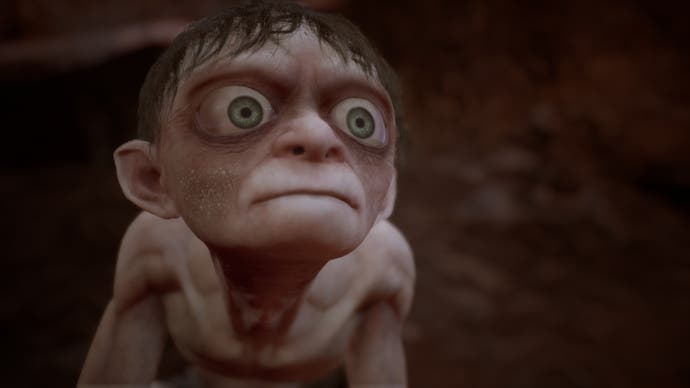
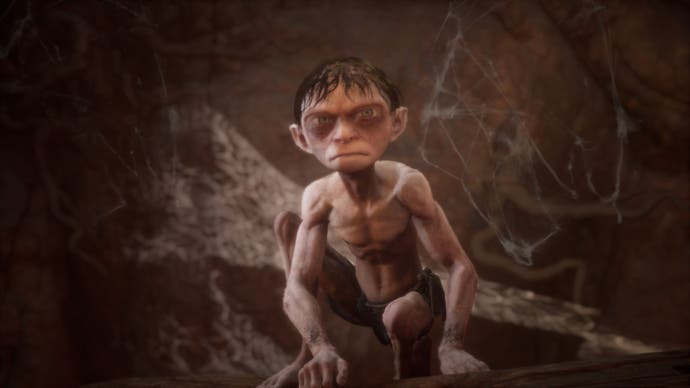
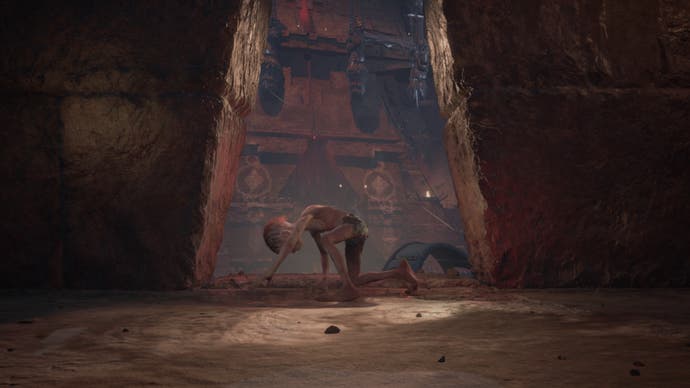
I say all this, but I also think that none of this would matter much if Gollum's game rose above its slightly uninspired story terrain. Sadly, this is a well-intentioned botch, compromised by technology and - worse - by its controls.
Let's take those points backwards. Gollum is a game that mixes platforming and stealth. The platforming at least benefits from some really lovely level design. From the mines and prison camps of Mordor to much more pleasant places, each level has a moment where the camera pulls back and you have something really tantalising to climb laid out in front of you, a happy ten minutes of working your way from ledge to ledge, wall-running, swinging off bars, forever edging your way higher.
I love this stuff in principle, but sadly Gollum isn't up to it. The controls are sleepy but also wilful. You'll press a button and can't be sure the input will register. Or it might register and do something you didn't entirely expect. At times like this, I think of the early Tomb Raiders, which Gollum's design sometimes invokes. By building its game around the grid system and rarely making special cases, those games had controls that, while tricky to master, could be relied upon utterly. Because of that grid, at any point you knew how far Lara could jump and which ledges she could reach.
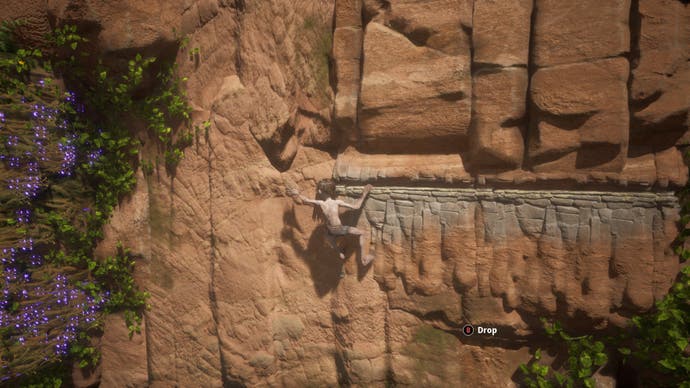
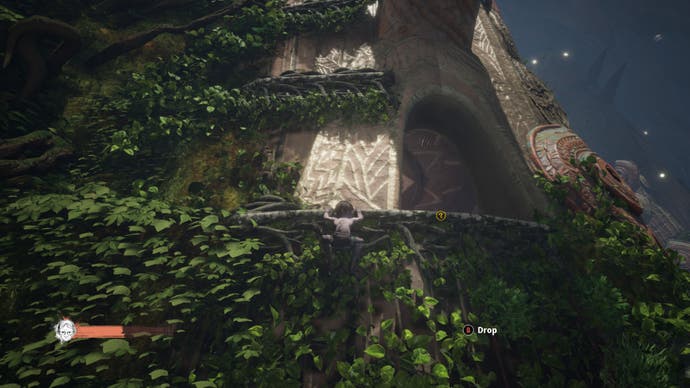

Gollum, however, belongs to the Uncharted school of platforming, where everything is tweaked to allow for grander surroundings and more cinematic traversal. These games? It often feels like they fudge things moment-to-moment, to allow you to land impossible jumps and wall-runs and generally feel cool in set-pieces. Gollum makes a muddle of this, however. It fudges things too often and sometimes feels like it's taking control when it shouldn't. At its best, this means that you can never be entirely sure whether Gollum will land a jump that feels impossible, because you don't know whether the game will intrude to help you. At its worst, the game intrudes to help you when you really don't need it, and Gollum pings off in a direction you didn't have in mind. Cue Nigel Pargetter death cry.
Special movements - the wall runs and those swing bars - are particularly bad for this stuff. I love the enthusiasm and craft with which the design mixes different kinds of traversal together, but early on I started to sigh whenever I saw the marks for a bit of wall-running or one of those bars. I didn't know whether the game was going to cope with me. Would it register my inputs or would it bring everything to a halt. Would it understand that I wanted to stop swinging on the bars so that I could manoeuvre a bit, or would it leave me dangling while my stamina bar shrank to nothing?
There are times, for sure, where the game genuinely flows - particularly once you're escaping from Mordor in the mid sections. There are gauntlets here that are just ingenious in their complexity and the elegance of the layout. But all too often the game's controls can't match the level design's wit. It's painful to see such good intentions let down so regularly.
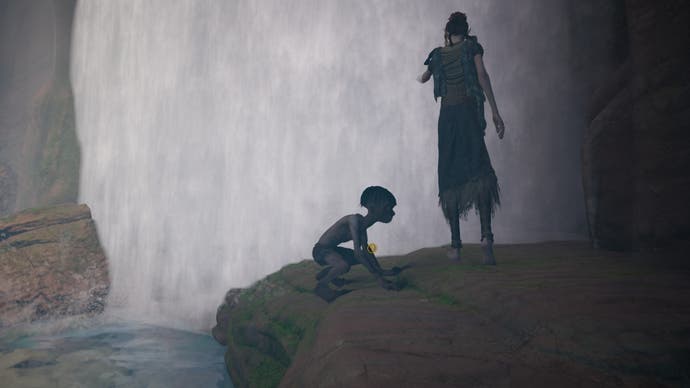
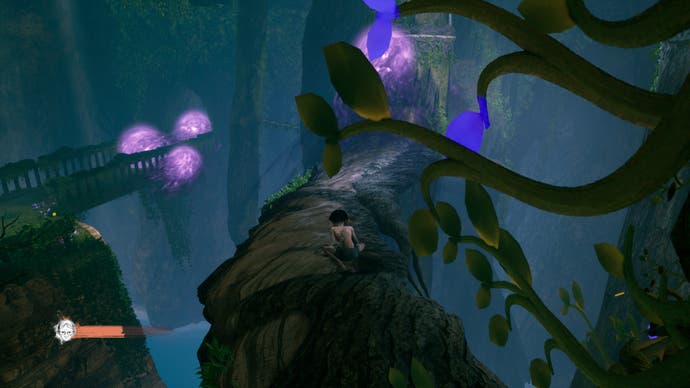
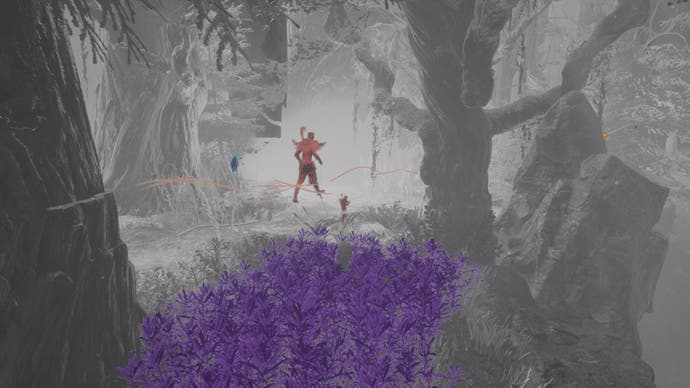
If platforming leaves me at least delighted by the overall intention, stealth is a bit of a mess from the off. Enemies are stupid and no fun to sneak around, the rock-throwing controls for creating a distraction are absolutely bizarre, and these sections always go on far too long. Gollum is a game with an awful lot of padding - uneven chapters will be stuffed with objectives that you need to complete, but which don't really move the plot forward. So many mission parts could have been an email. But stealth is always where things most often crash to a halt. It can be hard to work out what you're meant to do, and hard to work out how far a specific enemy will be able to see. What you get is stop-start progression made more palatable, thankfully, by decent auto-save points.
Stealth missions also feel like the game at its buggiest. Caveat here: I played on PC, where the game was ramshackle but playable. I've heard that the console versions are much more of a mess. Even so, in at least one stealth mission I reloaded from a death to find that the clockwork cinematic world around me had halted, and I couldn't trigger any new progress. Or I reloaded to discover that I couldn't move, but everything else could. Or I reloaded to see a "game over" screen and a reload that - thankfully - put me back in the action. At the worst of these moments I had to progress by going backwards - slipping from "reload last checkpoint" to "restart chapter." Not ideal.
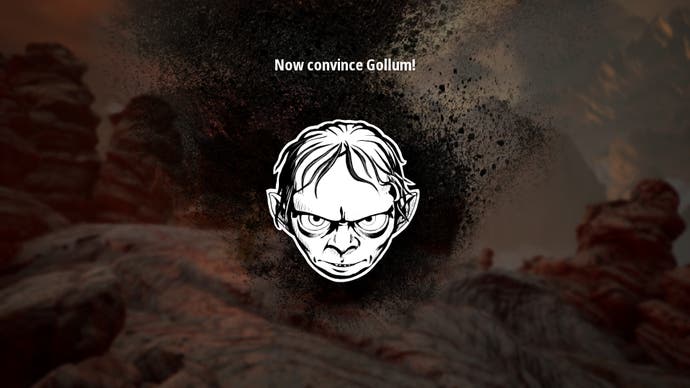
It feels mean to continue, really, particularly when there's so much obvious good intention everywhere in Gollum. But it's just a bit of a slog a bit too often. Clever ideas will go on too long, or fall afoul of control problems and need constant restarts. (One section that built on the classic Dale Winton game show Hole in the Wall - a favourite of Tolkien's I gather - is hilarious and clever until the fifteen attempt.) Also, the more I played, the more I admired the developer's commitment to building a game around the opposite of a power fantasy - Gollum eats worms to regain health, is shouted at by everyone he meets, and only seems to really cheer up when he's throttling someone - but the more I also wished for a bit more emotional texture to keep me going. Early mission types: go down the mine, collect tags from dead bodies, head to the sewer. Now a nice break to eat some worms. It's Gollum Stuff for sure, but it can get to you.
Ultimately it got to me. Last night, at a point in the final chapter where I assume I was at most a few sequences from the end of the whole game, I found myself in front of a puzzle door which I had poked at without progress for the best part of an hour. I couldn't tell anymore if I was missing something because I was thick (always a possibility for sure), if I was missing something because the puzzle was poorly directed, or if I was missing something because the game had broken. I tried everything, and then eventually I restarted the chapter, and lost an hour of progress, most of which involved a maze with stealth sections. I left it there and I still can't summon the energy to go back.
It's heart-breaking. Gollum has lovely design moments and a real sense of pluck to it - of a team reaching to do justice to something they love. But it has too many problems, and only some of them can be sorted with patches. It's too often a well-intentioned mess, and one which I can tell talented people have poured their lives into. So in a perverse way I guess it really does have that air of melancholy that so often drifts through Tolkien.
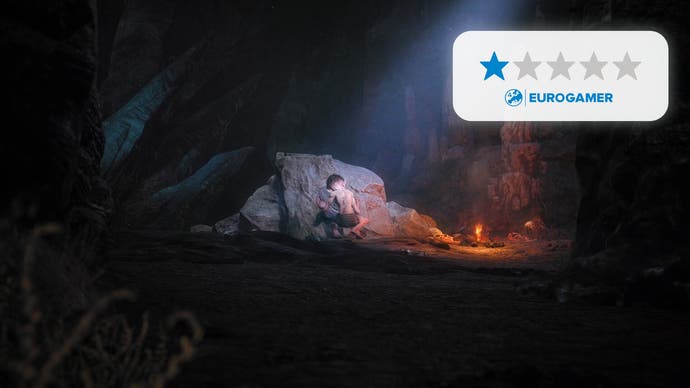



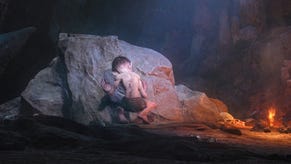

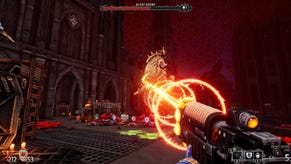
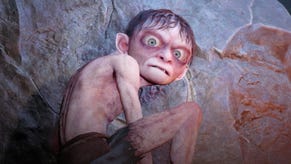
.png?width=291&height=164&fit=crop&quality=80&format=jpg&auto=webp)